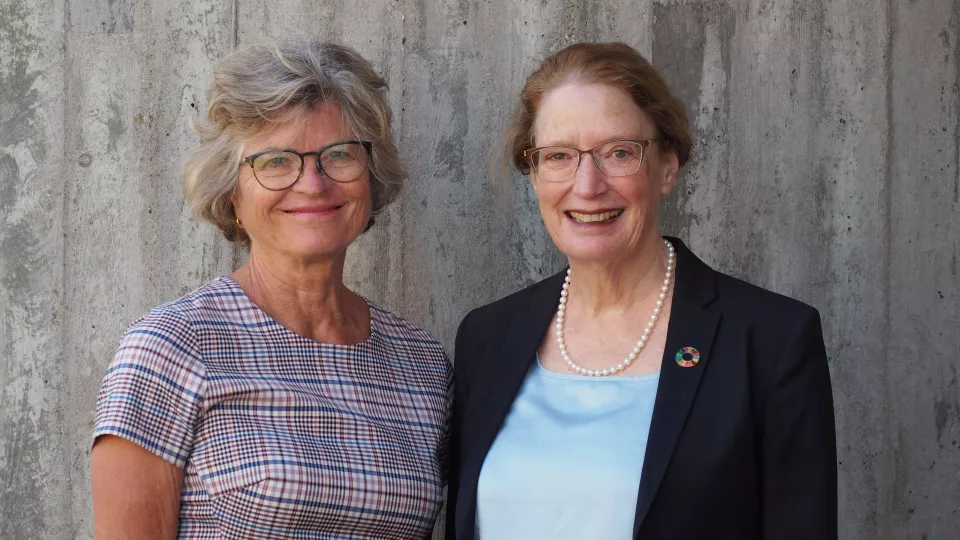Lifestyle should concern the health care system even more than it does today,stresses Hanne Tønnesen:
“We quite simply cannot afford to leave out the preventive part of health care.”
This is where the WHO Centre comes in. The Centre’s mandate is to research and synthesise existing knowledge on the introduction of evidence-based health promotion aimed at patients. The focus is on alcohol, tobacco, drugs, nutrition and physical activity – and how these affect our health, morbidity and also have an impact on the effectiveness of treatment.
The centre has been in existence since 2016 and is evaluated annually. Recently, it received an extension for another period, until 2024. The objective is for health promotion and disease prevention methods to become a natural part of all encounters we have with healthcare.
“After all, if research is not translated into action in the healthcare system, it loses its value –knowledge must be allowed to make a difference. ”We are talking about a large number of people. “Half of Sweden’s population has one of the lifestyle habits we are researching – imagine the impact if we can influence so many,” comments Inger Kristensson Hallström.
Early intervention and action is crucial
The challenges of implementing health promotion are well known, so how does one go about it to be successful? One way, say the researchers, is for prevention to be where the person is located, offered at all levels where it is relevant, and integrated into education at different levels. We need to reach everyone, no matter where they live or what their socio-economic status is. One contact point in Sweden is the Swedish Child Healthcare system, which is currently used by almost all families.
“We need to establish opportunities to reach children and promote healthy lifestyles early in life: preventing and promoting good sleeping habits, dental care habits, and helping to prevent people becoming obese or even overweight,” notes Kristensson Hallström, adding that health promotion is important for many different target groups in addition to children.
Quit smoking before surgery makes a difference
Then there are clear occasions when the health and medical care community can take the opportunity to make an extra effort. Studies have shown that in the context of surgery, lifestyle habits affect outcomes. They are important for wound healing, recovery and avoiding unnecessary complications. One example that is often highlighted is the cessation of smoking before a planned surgery, where the recommendation in Sweden is to stop smoking 4-8 weeks prior to the operation.
Studies have shown that smokers have more complications after surgery than non-smokers. Smoking also affects complications of pregnancy, both in the baby and the mother.
Here, health care needs to seize the golden opportunities and target interventions systematically. Everyone, regardless of level of education or socio-economic background, should be offered help to stop smoking.
“If we focus intensively on patients’ lifestyle habits, we will gain something that matters for the person’s health in the short and long term, and for society as a whole,” notes Hanne Tønnesen.
It is estimated that every year 12,000 people in Sweden die prematurely due to smoking alone.
Builds Global Networks
One of the strengths of the WHO Collaborating Centre is the large international network that comes with the designation. Right now, for example, work is underway to compile an international manual on chronic diseases, in which the Centre in Lund is collaborating with several other WHO Collaborating Centres around the world.
“We have the opportunity to bring together research on health promotion from many different universities and build networks in a global perspective. It is incredibly interesting and inspiring,” reports Inger Kristensson Hallström.
